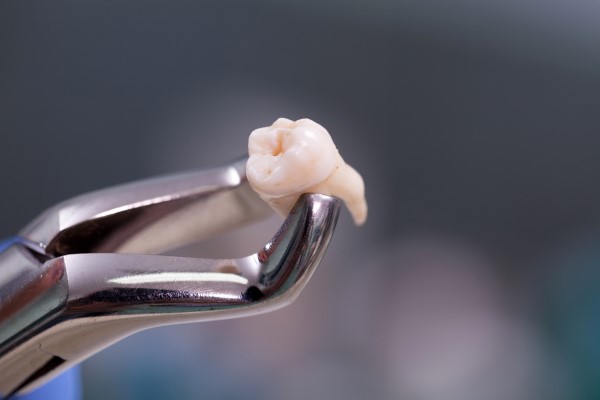When Oral Surgery May Be Necessary for Your Dental Complications

Oral surgery may be necessary when common dental procedures or appliances cannot solve your dental complication. In order to help you understand when a dental professional recommends oral surgery, we have outlined some of the most common reasons for needing this type of dental care.
When Oral Surgery is Necessary
Tooth Extractions
The oral surgeon will recommend an extraction if a tooth is impacted or considered beyond saving due to injury, decay, or disease. Impacted teeth develop when there is not enough room to erupt through the gums. Oral surgeons often see impacted wisdom teeth, but they can also result from:
- Too much crowding
- Chipped or broken tooth roots
- Abnormal positioning of the jawbones or teeth
- Dental abnormalities such as missing bicuspids or molars
Tooth decay occurs when the mouth produces acids that attack the tooth’s enamel. The acid can dissolve the enamel and cause cavities to form and destroy each layer down to the nerve. Dental injuries that have caused significant damage to the tooth, such as breaks or chips, that the oral surgeon cannot repair with general restoration options such as a filling, crown, or onlay.
Gum disease is the inflammation of the gums, usually due to poor oral hygiene. If left untreated, gum disease can lead to bone loss around the teeth, making them more likely to become loose and fall out or break. Untreated gum disease can also increase the chances of a patient developing periodontitis. Periodontitis, unlike gum disease, is not reversible; it is an infection that destroys the tissue surrounding the gums and eventually causes them to recede away from their roots completely.
Corrective Jaw Surgery
Corrective jaw surgery is used to correct severe malocclusions, such as an underbite, overbite, or jaw misalignments, that traditional orthodontic appliances, like braces, could not correct. During the surgery, the surgeon will remove excess bone and reposition the jawbone to sit properly when the patient bites down. The surgeon will also position the teeth into more appropriate positions so that the upper and lower arch align properly when smiling.
Sleep Apnea Surgery
Sleep apnea surgery involves removing the excess tissue from the throat to widen it and help keep airways open during sleep. This type of oral surgery aims to allow the patient’s body to take in enough oxygen on its own while in a restful state. Sleep apnea is when the upper airway becomes blocked while the patient is sleeping or in a restful state. This can lead to snoring, low oxygen levels, daytime fatigue, as well as other symptoms, such as memory problems. A dental professional may provide equipment to help improve sleep apnea symptoms at home, but only an oral surgeon may conduct sleep apnea surgery.
Cleft Lip and Palate Repair
A cleft lip is a split in the upper lip, and a cleft palate is a split in the roof of the mouth. Both conditions occur during fetal development when there is an abnormal growth of facial tissues before birth. They can be unilateral or bilateral, affecting one side of the face or both sides equally. In addition, to these physical abnormalities, patients with cleft lip or a cleft palate may also have trouble swallowing food or liquids due to the shape of the deformity; this can lead to nutritional deficiencies over time if not treated properly.
In need of oral surgery?
Oral surgery is a very common procedure that is performed every day. Oral surgeons use it to treat a wide range of conditions, including those not mentioned above. If you have concerns about your oral health, including facial and jaw-related, contact us today. We can schedule a consultation with our oral surgeon to determine an effective treatment plan.
Request an appointment here: https://newyorkdmd.com or call New York DMD at (917) 284-9680 for an appointment in our New York office.
Recent Posts
Do you need your wisdom teeth removed? Read on to learn about this common oral surgery procedure. The third set of molars, otherwise called the wisdom teeth, usually develop between 17 and 25 and are removed through oral surgery by a general dentist. Most individuals have at least one impacted wisdom tooth, which means it…
Your oral surgeon will recommend the right oral surgery for your needs. Each treatment corrects a specific issue and can enhance your oral health in different ways. Knowing these procedures can prepare you well for the next visits. Here are the common oral surgery procedures and how they can benefit you.The oral surgeon will recommend…
Understanding that oral surgery includes extracting teeth allows dental patients to know that extractions are serious dental treatments. General dentists often perform tooth extractions on their patients only when the tooth is no longer saveable. Therefore, a tooth replacement option must be chosen whenever a tooth is extracted.There are two different types of extractions: simple…
A broken tooth can be the result of many things, such as getting hit in the face while playing a contact sport. The severity of a broken tooth determines if it counts as a dental emergency. Minor breaks that only affect the outer layer of a tooth can wait a few weeks for treatment, but…


